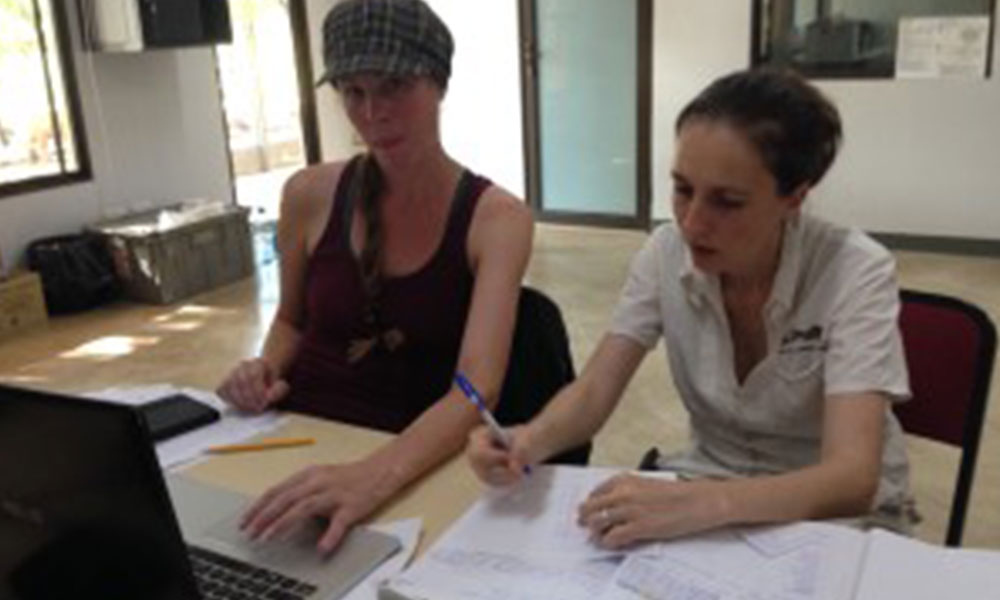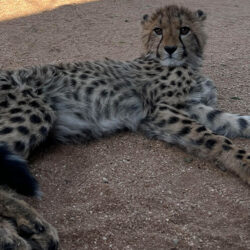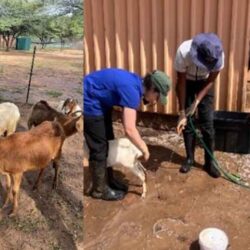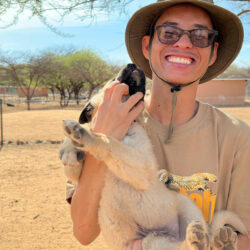CCF Genetics Laboratory Working with University of British Columbia Student
-

- by Katrin Hils April 5, 2016

Kristine Teichman, a PhD student from the University of British Columbia, came to CCF in February 2016 as part of a new collaboration with the CCF genetics laboratory. She is doing her PhD on “Mitigation of livestock depredation while conserving biological diversity in the succulent Karoo” in South Africa and is associated with the Cape Leopard Trust. Kristine contacted CCF earlier this year to ask if we could do the genetics work for her project.
Located in the northwestern part of South Africa, Kristine is doing extensive fieldwork and research on caracals to understand the behavior and ecology of these felids. Amongst others, one of her research questions is the relatedness of the caracals in her study area.
To get answers to this question, Kristine came to the genetics laboratory with over 50 hair and tissue samples of caracals. Because Kristine wanted to learn the basics of the genetics aspect and work, she stayed at CCF for 1.5 weeks and got real hands-on experience with the laboratory work.
Together with Kristine, the members of the genetics laboratory extracted hair and tissue samples of the South African caracal and also of a few Namibian caracal samples from CCF. The South African hair samples came from caracals that got caught in killer traps that farmers put up along fences and that were found by Kristine and her team during their regular monitoring work. The tissue samples were obtained from ear notches collected by Kristine from Caracals that she caught in life traps and released back into the wild after collaring them.


To obtain genetic information of each individual we conducted polymerase chain reactions (PCRs) with the genetic markers optimized at CCF and ran the samples on our Genetic Analyzer. Once the dataset is complete, it will provide information on the relatedness of the caracals, such as parent-offspring, sibling and half sibling relationships.
Additionally, with a specific genetic marker for sexing, we were able to find out the gender of the caracal corpses from which Kristine had collected hair samples, that were too decomposed to determine gender visually.
Dr. Anne Schmidt-Küntzel, Assistant Director for Animal Health and Research and Head of the Genetics Laboratory, and her team analyzed the data together with Kristine Teichman and explained the theory of the genetics work and how to interpret the results.
Unfortunately, 1.5 weeks flew by and Kristine had to go back to South Africa. The genetics laboratory will further proceed with the sample and data analysis and will share the results with Kristine for her studies.
Related Reading
-
September 30, 2025
Brendy’s Story: Honoring My Dad with the Cheetah Conservation Fund -
December 3, 2023
Paws, Prints and DNA: Chronicles of a Genetics Intern




